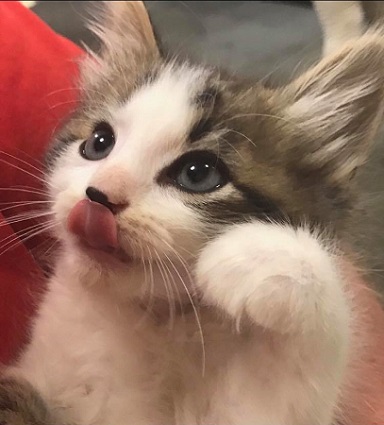Bite the Hand That Feeds You
 It makes no sense to bite the hand that feeds you. Some animals who eat out of a person’s hand do. So do many people.
It makes no sense to bite the hand that feeds you. Some animals who eat out of a person’s hand do. So do many people.
To bite the hand that feeds you means to hurt someone who helps you.
Rather than thank a kind person, you act cruel or rude.
Examples include:
- Children who mistreat parents who provide for them.
- Students who make fun of the person who helps them with homework.
- Employees who gossip about their boss.
- People who borrow money but never repay it or act ungrateful for it.
Eventually people pay for how they act.
Many receive a taste of their own medicine. Ungrateful children often have children who treat them the same way. They learn from what they see.
Results of biting the hand that feeds you may not be immediate. Usually, however, what goes around comes around.
Why not lend a helping hand?
Instead of hurting others, help them, no strings attached. Help those who help you, but don’t stop there.
- Aid others in need.
- Show kindness to everyone.
- Learn to love the unlovable. (Remember, we are all unlovable at times.)
“You make me glad by your deeds, Lord; I sing for joy at what your hands have done” (Psalm 92:4 NIV).
Thanks to Brad Leverett for the suggestion and to Jeri Stone for the photo.
Do you have an expression you want explained? If so, please comment below.
Subscribe to receive my weekly posts by email and receive a free copy of “Words of Hope for Days that Hurt.”
If you enjoyed this post, please share it with your friends.
 To view salt of the earth, take a trip across Utah’s Bonnieville Salt Flats. I thought that solid white scene would last forever.
To view salt of the earth, take a trip across Utah’s Bonnieville Salt Flats. I thought that solid white scene would last forever.
 “What’s wrong? Cat got your tongue?” I have heard several older relatives ask this, especially to children. Sometimes the children were shy. Other times, little ones feared a truthful answer would get them in trouble.
“What’s wrong? Cat got your tongue?” I have heard several older relatives ask this, especially to children. Sometimes the children were shy. Other times, little ones feared a truthful answer would get them in trouble. We all have our ups and downs.
We all have our ups and downs. Everyone makes mistakes. Those who act holier than thou rarely admit them.
Everyone makes mistakes. Those who act holier than thou rarely admit them. I don’t like to play golf. When family or friends invite me, I play a half-hearted game. I prefer to
I don’t like to play golf. When family or friends invite me, I play a half-hearted game. I prefer to  After Mom washed our clothes and put them
After Mom washed our clothes and put them  Do you have an expression you want explained? If so, please comment below.
Do you have an expression you want explained? If so, please comment below. A preschool relative visited our family years ago. She used my mother’s perfume without permission. When Mom asked what she had done, Kim beat around the bush. Over and over she responded, “I’m just tired.”
A preschool relative visited our family years ago. She used my mother’s perfume without permission. When Mom asked what she had done, Kim beat around the bush. Over and over she responded, “I’m just tired.” Many people wonder if anyone hears what they say. Their words seem to go in one ear and out the other.
Many people wonder if anyone hears what they say. Their words seem to go in one ear and out the other.